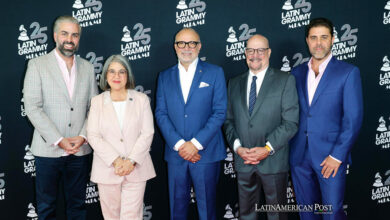Russia 2018: Why does FIFA aprove implementing VAR?
In a historic event, the IFAB approved the use of video arbitration in the next World Cup

The world of soccer has received news that will revolutionize this sport and generate changes in its history. The International Football Association Board (IFAB) approved on March 3 the use of the Video Assistant Referee (VAR) in a World Cup for the first time.
VAR: more questions than answers
The VAR was tested over two years in more than 1000 games. The German Bundesliga, the Italian Serie A, the French Ligue 1, the Copa Libertadores, the Copa Sudamericana, the Club World Cup, and the Confederations Cup were the competitions in which the VAR was implemented. Nevertheless, video arbitration left several controversies in most of the competitions.
The first great polemic arose in the first occasion in which the technology was used. Atlético Nacional of Colombia and Kashima Antlers of Japan met in the semifinals of the 2016 Club World Cup. The referee of the match, supported by the VAR, indicated a penalty in favor of the Japanese. However, many people said that the foul should not be called out of the game of the Japanese.
Later, in the match between Zambia and Italy during the U-20 World Cup in Korea, the judge decided to call a penalty for a supposed fault of the Italian goalkeeper on an African player. The fault never existed, so the judge decided to use VAR after the protests. The referee canceled the penalty but called foul outside the area. The latter did not exist either, but it was the reason for the expulsion of the Italian goalkeeper.
The competition in which the VAR has raised more controversy is undoubtedly the Serie A of Italy. In a game between Juventus and Atalanta in 2017, the judge decided to resort to the VAR in several plays, which left a balance of a goal nullified and a penalty. The players and the press questioned both decisions. Additionally, in another game of Serie A in 2017, where Cagliari faced Lazio, the VAR was involved in another questioned decision. The referee annulled a legitimate goal to Cagliari for a nonexistent out of place.
In the Confederations Cup VAR also presented failures, and the great affected was the Chilean National Team. The failures included offside goals, penalties, and cautions against Chile in the matches with Cameroon, Portugal, and Germany.
The South American tournaments were not exempt from referees’ errors either. In the Copa Libertadores of 2017, the great victim was River Plate from Argentina. This team was eliminated in the semifinals of the tournament due to the poor management of the Colombian referee Wilmar Roldán. On this occasion, the mistake was not due to misinterpretations of the system, but to the lack of training of the referee in the use of VAR.
The judge did not use the video system after a clear hand of Lanús in his own area. However, Roldán did use VAR to analyze a lack of River Plate, giving Lanús a penalty in favor. The referee's actions aroused different doubts as if the actions were due to lack of training or preference for a team.
FIFA defends the system
Gianni Infantino, president of FIFA, defended the VAR shielded in the percentage of successes that several studies have shown. "The VAR only fails 1% and is for journalists to write," said Infantino. On the other hand, Infantino assured that VAR will be totally beneficial for the World Cup: "It was our responsibility to make such an important decision and the VAR is already part of soccer, it will have a positive impact on football and World Cup matches, and it will help us to have a fair World Cup".
"The accuracy of the decisions in the reviewable categories has increased from 5.9% to 98.9%". “One hundred percent accuracy is impossible due to human perception and subjectivity in decision-making”, said the IFAB in its report. The document explains that the duration of the VAR to review incidents is approximately 60 seconds.
VAR faces the greatest proof of its existence and FIFA expects it to fully comply. In this way, the system will avoid situations such as 'the hand of God', phantom goals, or phrases such as 'it was goal of Yepes'.
In what cases will it be used?
At the 2018 World Cup in Russia VAR will be used only in four key moments:
- To validate or not a goal
- To apply or not a red card
- To grant or not a penalty
- To correct an identification error to a sanctioned player
These situations are considered as circumstances of referees’ high risk mistakes, so they were selected to receive the help of VAR.
The most important soccer competition, the World Cup, will be the stage where technology will intervene, although it has not yet received full reception. Russia 2018 will give us the answer.
LatinAmerican Post | Javier Aldana
Translated from " Rusia 2018 y la implementación de VAR"





